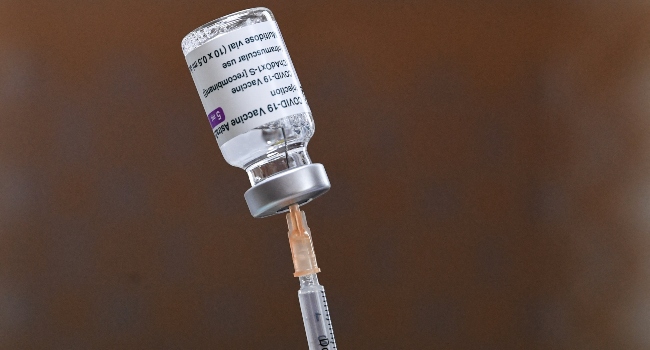Surplus COVID-19 Vaccines Should Be Shared, Adesina Tells Global Leaders

![]()
The President of the African Development Bank (AfDB), Akinwumi Adesina on Sunday called on global leaders to share surplus COVID-19 vaccines among nations.
Adesina, a former Minister of Agriculture in a Twitter thread on his official handle, noted that the world needs solidarity to beat the dreaded virus which has been contracted by millions across the globe.
“The world community needs strong vaccine solidarity, fairness and vaccine justice,” the AfDB leader began. “Globally, we should share surplus vaccines. Doing otherwise is like protecting one’s house alone in the midst of a raging forest fire in the neighborhood.”
The world community needs strong vaccine solidarity, fairness and vaccine justice.
— Akinwumi A. Adesina (@akin_adesina) March 14, 2021
Globally, we should share surplus vaccines. Doing otherwise is like protecting one’s house alone in the midst of a raging forest fire in the neighborhood.
— Akinwumi A. Adesina (@akin_adesina) March 14, 2021
While reiterating that COVID-19 does not discriminate, Adesina maintained that working together is the surest way to beat the disease.
“Protecting the global neighborhood protects all the neighbors,” he added. “Let’s all love our neighbors as ourselves.”

Vaccine Ban
As countries continue to roll out vaccination programmes against COVID-19, there appears to be a loss of faith in the AstraZeneca jab. A number of countries including Italy, Austria, among others, have suspended the use of the vaccine over fears of blood clotting.
Ireland on Sunday became the latest country to halt the administration of the vaccine, following reports of blood clots in adults who received the shot in Norway.
“The administration of COVID-19 Vaccine AstraZeneca is temporarily deferred from this morning, Sunday 14th March,” a health ministry spokesman told AFP.
The move came after Ireland’s National Immunisation Advisory Committee (NIAC) recommended suspending the AstraZeneca rollout “on the precautionary principal” after “a report from the Norwegian Medicines Agency of four new reports of serious blood clotting events in adults after vaccination”.
“It has not been concluded that there is any link” between the AstraZeneca vaccine and the blood clot cases and action has been taken “pending receipt of further information”, Ireland’s deputy chief medical officer Ronan Glynn said in a statement.
The NIAC is due to meet on Sunday morning and to issue a further statement on the matter.
Some 570,000 doses of coronavirus vaccines have been administered in Ireland to date, according to government data last updated Wednesday.
A total of 109,000 of those doses have been manufactured by the Anglo-Swedish pharma giant AstraZeneca.
READ ALSO: Rwanda’s Kagame First East African Leader To Take COVID-19 Jab
An AstraZeneca spokesman said the “an analysis of our safety data that covers reported cases from more than 17 million doses of vaccine administered has shown no evidence of an increased risk” in blood clot conditions.
“In fact, the reported numbers of these types of events for COVID-19 Vaccine AstraZeneca are lower than the number that would have occurred naturally in the unvaccinated population,” a statement added.


